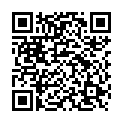|
|
|
| Module code: MBG21-6 |
|
|
2V+2S (4 hours per week) |
|
5 |
| Semester: 2 |
| Mandatory course: yes |
Language of instruction:
German |
Assessment:
Written exam (Descriptive Statistics) / written exam (Technical English)
[updated 17.04.2025]
|
MBG21-6 (P311-0195, P311-0196) Management and Professional Pedagogy in Health Care, Bachelor, ASPO 01.10.2021
, semester 2, mandatory course
|
60 class hours (= 45 clock hours) over a 15-week period.
The total student study time is 150 hours (equivalent to 5 ECTS credits).
There are therefore 105 hours available for class preparation and follow-up work and exam preparation.
|
Recommended prerequisites (modules):
None.
|
Recommended as prerequisite for:
MBG21-10 Methodologies II
MBG21-11 Healthcare Management II
MBG21-15 Evidence-Based Medical Care and Nursing
MBG21-16 Study Project
MBG21-19 Academic Methodologies and Study Skills III
MBG21.E.61
MBG21.S.32 Reviews and Guidelines
MBG21.S.33 Evaluation
[updated 04.12.2025]
|
Module coordinator:
Prof. Dr. Michael Bergmann |
Lecturer:
Prof. Dr. Michael Bergmann
Dipl.-Übers. Eva Langenbahn
[updated 04.12.2025]
|
Learning outcomes:
Descriptive Statistics
After successfully completing this module, students will have the following skills and competencies:
Students will be able to:
explain the basic principles of descriptive statistics for collecting, evaluating, and presenting data from a health science context.
recognize data structures and data types in order to select and apply appropriate graphical and algebraic methods for describing one or more characteristics.
understand the differences and meanings of statistical indicators and graphs used to describe data.
recognize and calculate relationships and correlations between two-dimensional data.
perform initial analyses using statistical software (e.g., SPSS).
critically interpret and discuss descriptive analyses in publications.
critically discuss statistical findings in groups and with fellow students.
become willing to take research findings into account in their future professional activities.
Technical English
After successfully completing this module, students will have the following skills and competencies:
Students will be able to:
distinguish all tenses commonly used in English with the corresponding aspects ´simple´
and ´continuous´ and reproduce the verb forms accordingly in questions, positive and negative statements.
describe various activities related to studying and possible career fields using
the relevant vocabulary and phrases.
find the ´right´ tone (formal/informal) for the situation when communicating with others,
especially in intercultural exchanges.
discuss short specialized texts in terms of content and analyze vocabulary and grammatical structures.
analyze the structure and the linguistic and visual means to be used when creating a presentation
about their studies:
Students will be able: to explore meaningful ways of linking sentences (cause and effect, contrast, and addition),
as well as describing graphs and other diagrams (increase and decrease).
They will be able to:
use the named forms, tenses, and aspects when speaking and writing, and correctly classify
the associated information when listening/reading.
use appropriate vocabulary and phrases when communicating about their studies and possible career fields and
decide on the ´right´ tone (formal or informal) depending on the situation.
prepare a presentation on the content and structure of their studies and give it in groups.
They will be able to:
communicate and cooperate in the foreign language on the way to Level B2 (European Reference Framework).
give a presentation for the international exchange.
reflect on their learning progress, their own speaking skills, and their functional language use.
[updated 17.04.2025]
|
Module content:
Descriptive Statistics
1. Basics and terms (objectives of descriptive statistics, population and sample, characteristic and characteristic value)
2. Differences and significance of scale levels
3. Algebraic methods (frequencies, location and dispersion measures, correlations)
4. Graphical methods (univariate and bivariate)
5. Using software (e.g. SPSS)
Technical English
- Communication in work-related and intercultural situations
- General and detailed comprehension of course-specific specialist texts und presentations inkl. taking notes
- Describing course content and career fields
- Structure and language of English presentations
- Expanding technical vocabulary
- Describing graphs and diagrams
- Describing cause-and-effect relationships
In addition, we will work on:
- Vocabulary
- Repeating relevant grammatical structures
[updated 17.04.2025]
|
Teaching methods/Media:
Blended learning
[updated 15.11.2021]
|
Recommended or required reading:
Will be announced at the beginning of the module.
[updated 17.04.2025]
|

